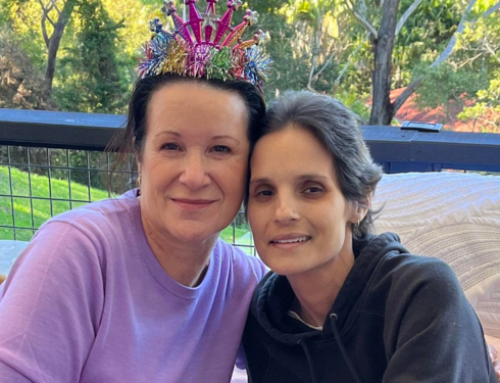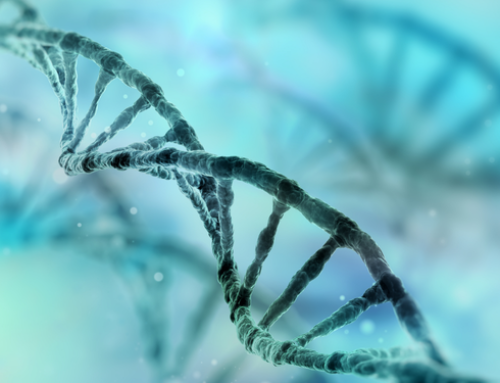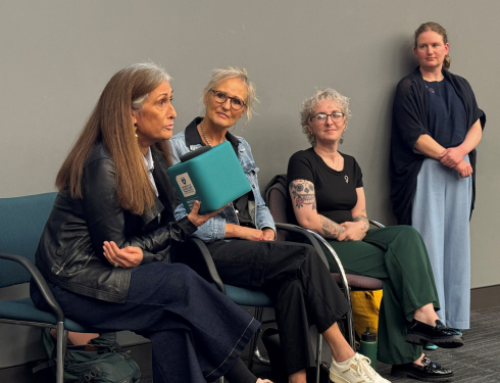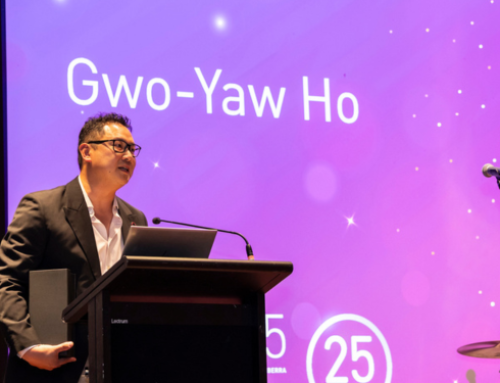In light of International Nurses Day that marks the contribution that nurses make to society, meet Victoria, regional nurse and ovarian cancer survivor.
Victoria’s story demonstrates the impact of her diagnosis, the importance of gynaecological nurses, her contribution to ANZGOG’s Survivors Teaching Students program, and her motivation to improve access to services for those who live regionally.
Can you tell us about your diagnosis story?
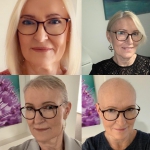
In May 2020, I was diagnosed with stage 3C high grade serous ovarian cancer. During the 8 months prior to this, I was presenting symptoms to my GP that included a change in bowel habits and frequency in urination, weight loss, lower back pain, fatigue and pelvic pain. Through a pelvic ultrasound, it was discovered that a large mass was present on my right ovary, with subsequent scans indicating that it had spread extensively within the peritoneal cavity and to multiple lymph nodes. My treatment plan involved 9 weeks of chemotherapy and extensive debulking surgery, followed by an additional 9 weeks of chemotherapy. In December 2020, I finished my last round of chemotherapy. Since then, I am slowly regaining my energy levels and quality of life, as well as my hair. I am very fortunate to have an amazing husband & family for support.
How has your personal experience with cancer affected your nursing career?
My full-time nurse education position involves certain demands and travel requirements, and sadly, due to chronic pain, fatigue and peripheral neuropathy, I will be unable to return to the role. I have loved the variety and amazing opportunities that nursing has provided me, but unfortunately, my cancer diagnosis will prevent me from continuing with my career and affected a largely important aspect of my life.
How is the role of a nurse important for gynaecological cancer patients?
The success of my pre- and post-operative care and chemotherapy journey, is attributed to the ovarian cancer nurse from Ovarian Cancer Australia’s (OCA) Teal Support Program. Their Telehealth program initially provided me with constant one-on-one support each week. My gynae oncology nurse was consistent with her effort to provide me with the time that I needed, and was committed to establishing a strong rapport and level of trust. In addition, she completed thorough pain assessments and suggested strategies to provide pain relief and solutions for ongoing nausea.
Although I am not currently receiving any active treatment, my ovarian cancer nurse continues to regularly check in with me and offer support. A woman’s life is significantly impacted by gynaecological cancer, in both physical and psychological aspects. In saying this, my ovarian cancer nurse continually takes the time to listen to my health concerns, and offer encouragement and advice as required. With access to my health record, she can act as a link between the various members of my multidisciplinary team. It is wonderful to have such a knowledgeable and compassionate woman involved in my care.
What challenges do regional cancer patients face, and how can we overcome them?
As I live in regional northern NSW, my cancer journey was made quite difficult with COVID-19, as the closest gynaecology oncologist was located on the Gold Coast, Queensland. My 3-night stay in ICU and 6-night stay on the surgical ward following my debulking surgery were challenging, as I was placed in isolation and unable to have any visitors to adhere to the strict COVID-19 standards.
I am extremely proud of the role that nurses have played during COVID-19. The care and compassion they show to patients, with the added stress of the pandemic, was greatly appreciated during a very traumatic time of my life.
When discussing care with other women with ovarian cancer, I noticed that the care provided at large specialist centres, such as Chris O’Brien Life House & the Peter MacCallum Cancer Centre, are extremely well coordinated. These centres excel in providing patients with a range of multidisciplinary services such as psychologists, dieticians, music therapy, massage and exercise physiologists, within one convenient location. The women treated at these centres also seemed to have a greater knowledge of, and access to, clinical trials.
Being a regional patient myself, I hope that access to clinical trials and support groups will improve for patients outside the metropolitan cities. Consequently, I plan to explore the possibility of establishing an ovarian cancer support group in the Tweed/Byron/Ballina region.
How did you first get involved with Survivors Teaching Students (STS)?
During my chemotherapy sessions I was regularly on social media and I came across a post by Leane Flynn, a wonderful ambassador for ovarian cancer, who was part of the Survivors Teaching Students program. This inspired me to decide that once I was well enough, after my surgeries and chemotherapy, I would reach out to the STS National Manager, Dr Helen Gooden, to register my interest in volunteering my time for this wonderful initiative. I have been extremely impressed with how positive and supportive she and the regional coordinator, Lesley, have been in encouraging me to participate in this program.
What do you believe are the benefits of STS for both volunteers and students?
The benefits for students are that they hear first-hand stories from women with this insidious disease, and are made aware of the real impacts of ovarian cancer and of how common it is for women to take many months to receive an ovarian cancer diagnosis.
Many health professionals are not aware of how poor the 5-year survival rate is for late-stage ovarian cancer. By raising awareness of the cluster of ovarian cancer signs and symptoms to medical students, we hope to help improve the chance of earlier diagnosis and improve outcomes for women. In addition to this, education is being be provided to nurses regarding how ovarian cancer impacts each aspect of a women’s life and how they can support them through holistic care.
The benefits to volunteers are an opportunity to share their story, help raise awareness and meet other ovarian cancer survivors. At this stage, I have only presented to one group of medical students, but hope to be able to share my story with nursing students in the future. Volunteering for STS has been such a positive and rewarding experience.

Victoria’s Bio
Beginning her general nursing career in regional NSW, Victoria moved to Sydney to study midwifery. Throughout her 39-year nursing career, she has held clinical research, academic and education management roles. Victoria completed several post-graduate qualifications up to Master’s level in Nursing and Education, and held lecturer positions at The University of Sydney and University of Technology Sydney (UTS).
Victoria has worked with the Australian Nursing & Midwifery Accreditation Council (ANMAC) on several Accreditation Assessment Teams, and is currently on leave from her Education Leader for Allied Health & Nursing role at TAFE NSW – Northern Region (Port Macquarie to Kingscliff).
For more information on Survivors Teaching Students, click here or contact their team.
